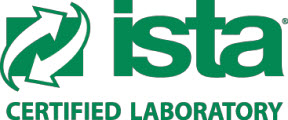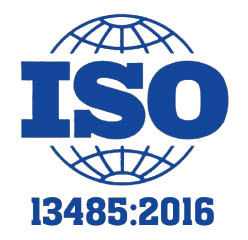ASTM Standards
Life Science Outsourcing is an industry-leading expert in medical package testing that complies with all required ASTM International standards.
ASTM Standards Expertise
ASTM International, originally known as the American Society for Testing and Materials, is an international standards organization that develops and publishes voluntary consensus technical standards for a wide range of materials, products, systems, and services.
ASTM has a dominant role among standards developers in the USA and is considered to be the world’s largest developer of standards. While it cannot enforce its standards, government authority can make them mandatory. Using a consensus process, ASTM supports thousands of volunteer technical committees, which draw their members from around the world and collectively develop and maintain more than 12,000 standards.
Categories of ASTM International Standards
- Standard Specification defines requirements to be satisfied by subject of the standard.
- Standard Test Method defines the way a test is performed. The result of the test may be used to assess compliance with a specification.
- Standard Practice defines a sequence of operations that, unlike a test, does not produce a result.
- Standard Guide provides an organized collection of information or series of options that does not recommend a specific course of action.
- Standard Classification provides an arrangement or division of materials, products, systems, or services into groups based on similar characteristics such as origin, composition, properties, or use.
ASTM D Standards
ASTM D-10 Committee’s Scope
The ASTM F-02 Committee’s responsibilities include the development of terminology, test methods, practices, and specifications for flexible barrier packaging, and the promotion of research in this field. Standards under the jurisdiction of other committees shall be used when applicable.
The area of interest of the committee is flexible barrier packaging, including the component barrier materials, their properties, and package design, development and production. Flexible barrier packaging for the purpose of this Committee includes any package with at least one flexible component that can be bent or folded back upon itself. Typical flexible barrier materials are papers, nonwovens, plastic films, and metal foils, used alone, treated or in various combinations.
- ASTM-D3078
Standard Test Method for Determination of Leaks in Flexible Packaging by Bubble Emission - ASTM-D4169
Standard Practice for Performance Testing of Shipping Containers and Systems - ASTM-D4728
Standard Test Method for Random Vibration Testing of Shipping Containers - ASTM-D4332
Standard Practice for Conditioning Containers, Packages, or Packaging Components for Testing - ASTM-D5276
Standard Test Method for Drop Test of Loaded Containers by Free Fall - ASTM-D642
Standard Test Method for Determining Compressive Resistance of Shipping Containers, Components, and Unit Loads - ASTM-D999
Standard Test Methods for Vibration Testing of Shipping Containers - ASTM-D6344
Standard Test Method for Concentrated Impacts to Transport Packages - ASTM-D6653
Standard Test Methods for Determining the Effects of High Altitude on Packaging Systems by Vacuum Method
ASTM – F Standards
ASTM F-02 Committee’s Scope
The ASTM F-02 Committee’s responsibilities include the development of terminology, test methods, practices, and specifications for flexible barrier packaging, and the promotion of research in this field. Standards under the jurisdiction of other committees shall be used when applicable.
The area of interest of the committee is flexible barrier packaging including the component barrier materials, their properties, and package design, development and production. Flexible barrier packaging for the purpose of this Committee includes any package with at least one flexible component that can be bent or folded back upon itself. Typical flexible barrier materials are papers, nonwovens, plastic films, and metal foils, used alone, treated or in various combinations.
- ASTM-F1140
Standard Test Methods for Internal Pressurization Failure Resistance of Unrestrained Packages - ASTM-F1929
Standard Test Method for Detecting Seal Leaks in Porous Medical Packaging by Dye Penetration - ASTM-F1980
Standard Guide for Accelerated Aging of Sterile Barrier Systems for Medical Devices - ASTM-F1886
Standard Test Method for Determining Integrity of Seals for Medical Packaging by Visual Inspection - ASTM-F88
Standard Test Method for Seal Strength of Flexible Barrier Materials (Peel Test) - ASTM-F2096
Standard Test Method for Detecting Gross Leaks in Medical Packaging by Internal Pressurization (Bubble)


